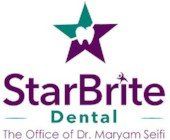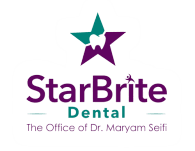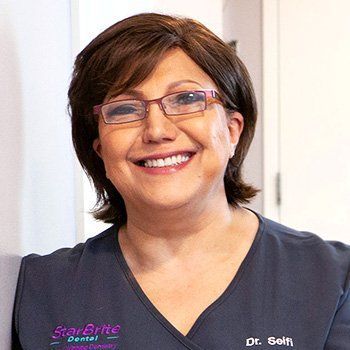Bad Breath (Halitosis)
Understanding Bad Breath (Halitosis)
Bad breath, also known as halitosis, is a common yet embarrassing issue that affects millions of people worldwide. It can impact social interactions, self-confidence, and even professional relationships. While occasional bad breath is normal, persistent halitosis can indicate underlying oral health problems that require professional attention.
Many people attempt to mask bad breath with chewing gum, mints, or mouthwash, but these solutions are often temporary fixes rather than long-term treatments. Chronic halitosis may stem from deeper dental issues, such as periodontal disease, dry mouth, or even systemic health conditions. Identifying and addressing the root cause is essential for effective treatment.
At Starbrite Dental, Dr. Maryam Seifi and her team specialize in diagnosing and treating bad breath at its source. With state-of-the-art technology and a patient-focused approach, they help individuals achieve long-lasting fresh breath and improved oral health. Whether it’s a professional cleaning, gum disease treatment, or personalized recommendations for home care, Starbrite Dental offers tailored solutions for every patient.
What Causes Bad Breath?
Bad breath can stem from a variety of factors, ranging from diet choices to serious medical conditions. Understanding these causes can help in effective treatment and prevention.
How a Dentist Diagnoses Bad Breath
At Starbrite Dental, Dr. Seifi takes a comprehensive approach to diagnosing halitosis, ensuring that the underlying cause is properly identified and addressed. Diagnosis involves multiple steps, including:
Treatment Options for Bad Breath
At Starbrite Dental, we offer advanced, patient-focused solutions to address bleeding gums and restore your oral health.
At-Home Remedies & Prevention
When to See a Dentist
If you experience persistent bad breath despite good hygiene or notice symptoms such as bleeding gums, dry mouth, or frequent throat infections, it’s time to schedule an appointment.
Starbrite Dental’s Approach to Treating Bad Breath
At Starbrite Dental, Dr. Maryam Seifi and her team take a comprehensive, patient-centered approach to treating bad breath. Their goal is to eliminate halitosis by addressing its root cause, not to mask it.
Frequently Asked Questions (FAQ)
Get Expert Bad Breath Treatment in Rockville, MD
If you struggle with chronic bad breath, Starbrite Dental is here to help. Book an appointment with Dr. Maryam Seifi today and take the first step toward fresher breath and a healthier smile.
Contact Us To Schedule An Appointment Today!
*We DO NOT ACCEPT HMO Insurance, State Insurance, Medicaid/Medicare, or discount plans. Fees apply for services. and same-day appts/emergencies.
Evening and Weekend Hours Available
- Monday
- Closed
- Tuesday
- -
- Wed, Fri
- -
- Thursday
- -
- Saturday
- -
- Sunday
- Closed
Office
(301) 770-1070
Fax (301) 770-0544
5936 Hubbard Dr, Rockville, MD 20852


